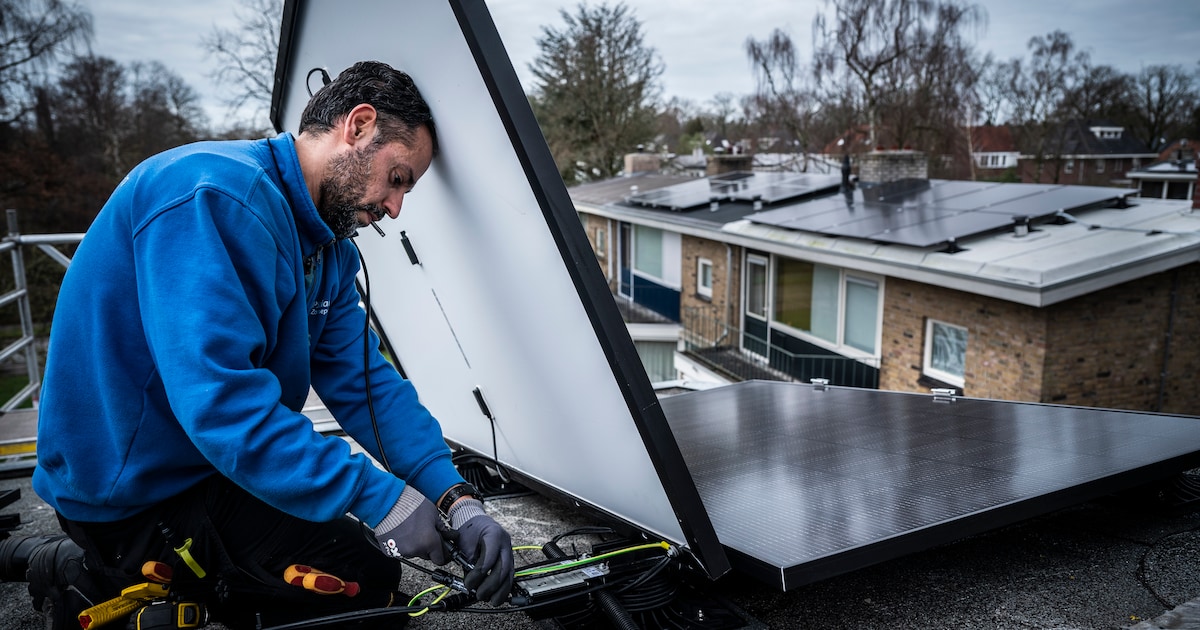
The new coalition does not want to commit to climate goals, but the proposed measures “do not seem feasible.” The officials wrote this in their critical analysis of the main lines agreement. The outgoing minister, Hugo de Jonge (Interior Affairs), published the documents at the request of the opposition.
The climate goal (55 percent less greenhouse gases by 2030) remains intact if it depends on the coalition parties NSC, BBB, PVV and VVD. But a large part of the climate measures are being discarded. “The means to achieve the objectives are lacking,” the officials write.
The congestion of the electrical grid is given as an example. The network is now saturated, meaning new residential areas sometimes have to wait months to connect. The new cabinet wants to solve these problems “as a priority.” But no additional resources are being made available to do anything about the problems, officials write.
Energy tax
There is also criticism of the reduction in energy taxes. “The energy bill may become affordable in the short term, but the incentives to be more sustainable are deteriorating.” And the intention to save 16 percent energy by 2030 is “under pressure”, because soon households will no longer have to buy a heat pump. That 16 percent is binding because the Netherlands also has a European obligation to save energy.
The removal of the financially favorable system for the installation of solar panels on the roof (the grid system) also does not contribute to the energy transition. According to officials, this is causing unrest in the solar panel sector. In addition, homeowners will be the first to refrain from installing solar panels.
The new cabinet wants to abolish the so-called compensation system, by which owners of solar panels can offset the excess energy supplied during sunny hours with the energy they consume on winter days, in one go in 2027. surprising decision because the proposal of the outgoing Climate Minister, Rob Jetten, was rejected a few months ago in the Senate by the BBB and PVV coalition parties. Jetten proposed eliminating the plan in stages.
Small bag
According to experts, Jetten’s proposal gave more security to solar panel installers and owners. In addition, the minister promised an additional €100 million for the installation of solar panels on the roofs of rental properties, so that people on a tight budget can also benefit from the scheme. The new coalition puts an end to that amount. “The House of Representatives has requested this compensation,” the officials write.
That brings officials to their next point. Coalition parties, especially the New Social Contract (NSC), believe that the green transition is happening very quickly. People with little money could not afford or afford all these sustainability measures, it is criticized. But according to officials, the new coalition’s climate policy has the opposite effect: “it does not alleviate the burden on vulnerable groups.”
In this sense, officials also point out that the so-called Social Climate Fund is not included in the new coalition’s climate plans. This fund aims to support people with low incomes so they can participate in the green transition. It is a European fund and to secure money from that fund, the government must make policy proposals by 2025 at the latest.
Read also: Timmermans and Jetten fear for their climate legacy: “Red diesel is back, for God’s sake”
With the arrival of the alleged radical right coalition, Frans Timmermans and Rob Jetten fear for the legacy of their national and European climate policy. “This government is introducing more fossil subsidies again.”